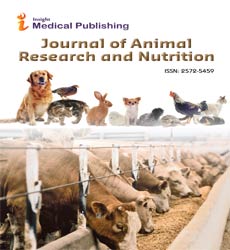Abstract
The Effects of Captivity on Diet and Lifespan in White-Tailed Deer (Odocoileus virginianus)
White-tailed deer (Odocoileus virginianus) born and raised in captivity live, on average, three times longer than wild populations. Raising white-tailed deer in captivity brings about significant changes to their diet. Nutrition has been shown to play an important role in survival and reproduction of white-tailed deer. This study seeks to determine the effects of captivity on diet and health in white-tailed deer and how this affects their lifespan. Fecal samples from captive and wild white-tailed deer populations were collected, in northern Michigan, and analyzed using gas chromatography-mass spectrometry and stable isotope analysis. The study results suggest that captive white-tailed deer consume significantly different diets and nutrients than wild populations, based on the stable isotope and principal component analysis.
Author(s):
Schipansky AK, Gumkowski E, Klemz M, Wilks S
Abstract | Full-Text | PDF
Share this

Google scholar citation report
Citations : 764
Journal of Animal Research and Nutrition received 764 citations as per google scholar report
Abstracted/Indexed in
- Google Scholar
- China National Knowledge Infrastructure (CNKI)
- WorldCat
- International Committee of Medical Journal Editors (ICMJE)
- Secret Search Engine Labs
Open Access Journals
- Aquaculture & Veterinary Science
- Chemistry & Chemical Sciences
- Clinical Sciences
- Engineering
- General Science
- Genetics & Molecular Biology
- Health Care & Nursing
- Immunology & Microbiology
- Materials Science
- Mathematics & Physics
- Medical Sciences
- Neurology & Psychiatry
- Oncology & Cancer Science
- Pharmaceutical Sciences

